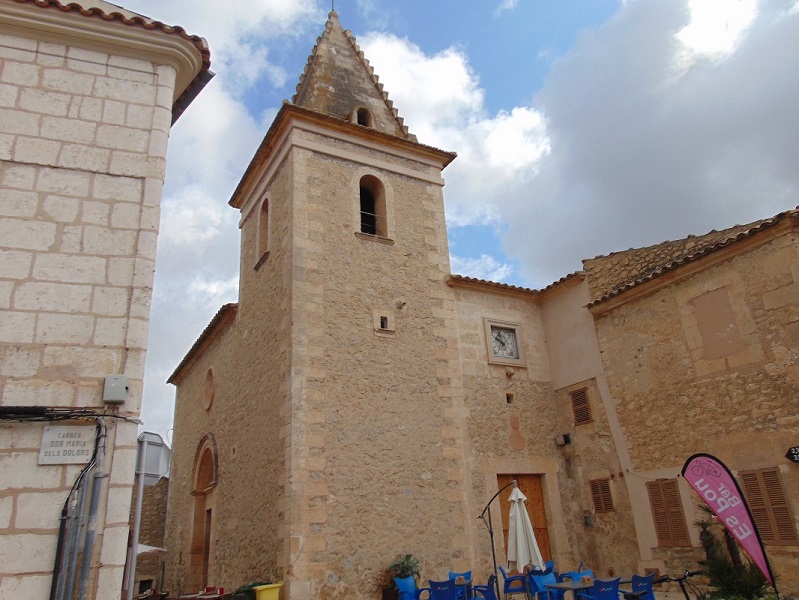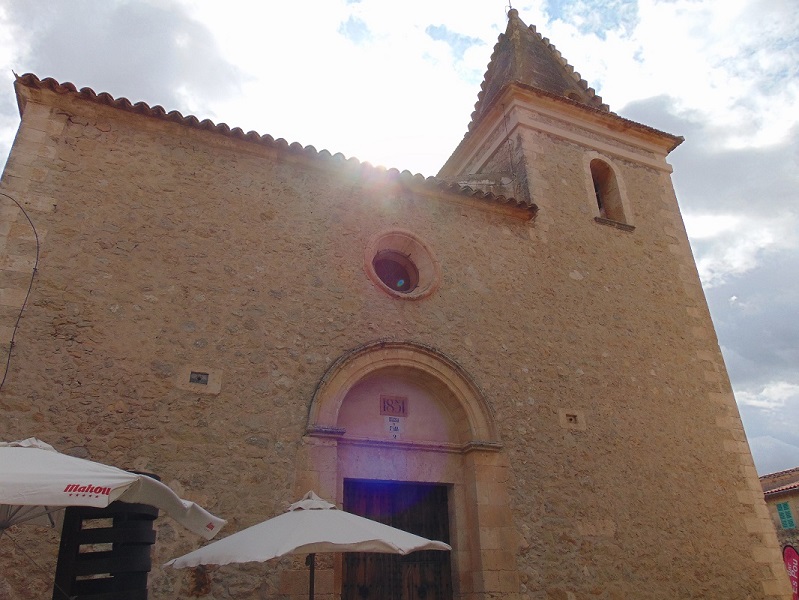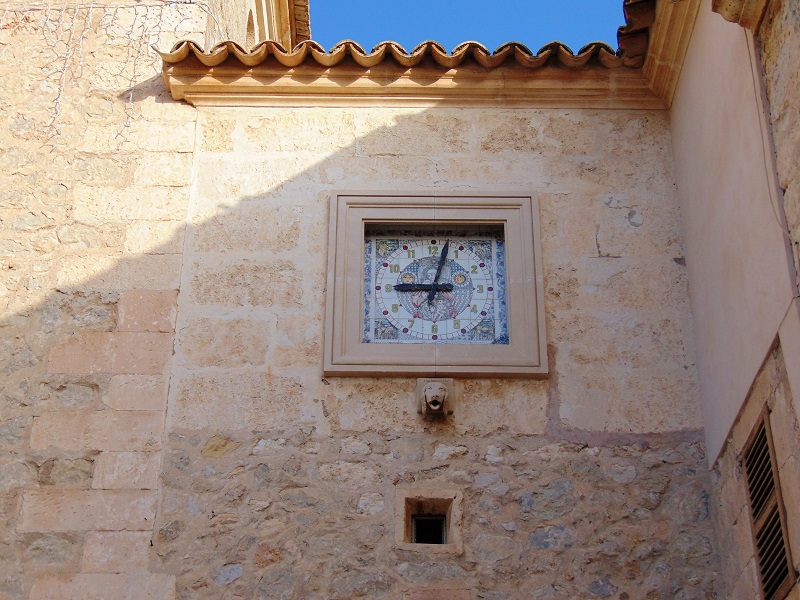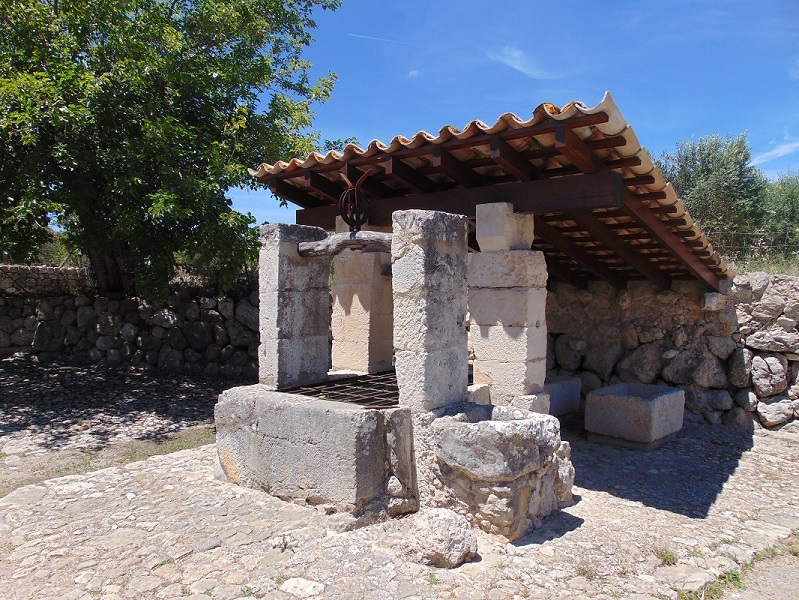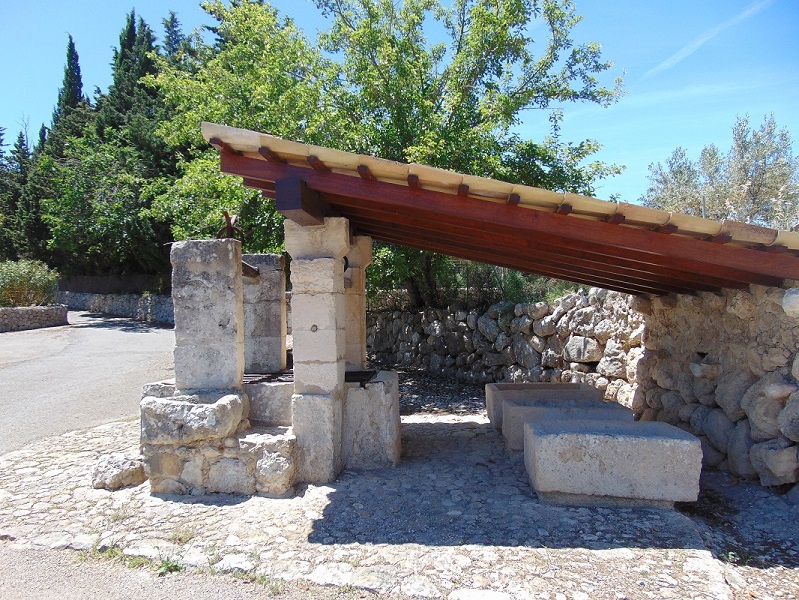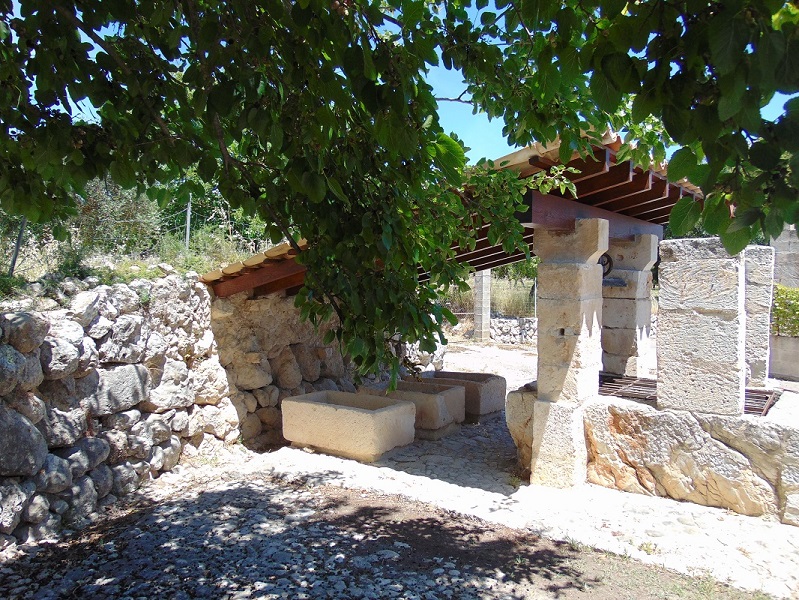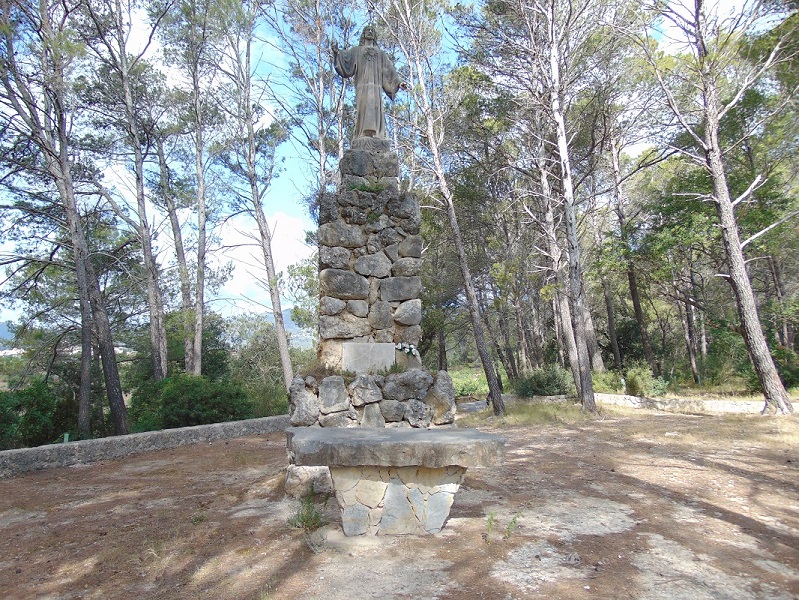Moscari
The name of Moscari is already cited as Moscàritx in 1230. But the etymology of the name is problematic: while Josep Mascaró Pasarius has considered it derived from the Latin Muscus, “moss”, the philologist Joan Coromines believes that it comes from the Latin Musca, “fly”, passing through Muscaria, "mosquera", "bush", whereby Moscari, originally following this hypothesis, would have originally meant where many of these mosquera plants are born; on the other hand, the linguist Alvaro Galmés de Fuentes, based on the same Latin Muscus, interprets it as “mesc” or “musk”, in the sense of where almescades plants or musky-smelling flowers are born. In any case, it is a mozarabism.
The territory of the Moscarian district is in a transition zone between the mountain and the plains (flat area in the middle of the island), furrowed by the medium course of torrents and characterized by a slight inclination towards the southeast, the hydrographic slope of the Bay of Alcúdia.
In this town, you will find the characteristic peace of the small villages only altered during the celebrations of Santa Anna or when the popular festivities take place, always on the last weekend of August.
Source: ORDINAS GARAU, Antoni – PARÍS MOREY, Antoni – ROTGER MOYÀ, Francesca (2006) Moscari i el seu districte.
Village images
Fairs and celebrations
- Fairs and celebrations
26th July (Santa Anna)
Last weekend of August (Festes Populars)
Places of interest
Pou Street, 2.
The current configuration of the temple is the result of successive extensions and reforms made throughout the nineteenth century. Inside, in the presbytery area, you can see three important works of the López workshop, one of the most important in the second half of the 16th century in Mallorca. The piece that occupies the central space is a table dedicated to the Virgin Mary of Roser, with Saint Dominic and Saint Catherine of Sena kneeling at her feet and surrounded by scenes of the mysteries of the rosary. The side tables represent San Antonio (the one on the left) and Santa Catalina (the one on the right). Before the church square, there is a reservoir started in 1931, of which only one source of iron can be seen externally.
Until the seventeenth century, Moscari did not have a place of congegration. According to tradition, the origin of the Moscari church was a private oratory that was built bordering the houses of Son Macer's property, to the same place or very close to where the current temple is. In 1660 this chapel was in decay and the Moscarians offered to rebuild it with the condition of making it bigger and giving it a public property.
On the road of the Well of Son Ferrer and Ses Casetas (the first street left once you exit Moscari towards Campanet).
It is a well with neck and pillars, covered by a porch that protects a set of water containers. The well is a drywall, has a rectangular plan and reaches 8’2 m deep. Externally it has a neck made of stone blocks, in one of which we can read the date of 1806. Above the neck are four pillars of marés that support two wooden stringers on top of which there are iron pulleys. Following the well, there is a spade and under the arcade three more. As for the porch, it is supported on the two posterior pillars of the neck. The porch and the surroundings of the well are paved, as well as a ditch that carries water from the path behind the spade.
It could have been built in 1823 since on this date 30 pounds were paid for the construction of two wells in Moscari and this is one of the two common wells of the town. There is also the possibility that the only construction made on this date was the arcade, if we look at the date that appears chiseled around the neck: 1806. We know that 1846 was enlarged and restored. A few years later, in 1874, the arcade was built. Like all public wells, it needed continuous maintenance. Within the 20th century, on August 21, 1925, Antoni Homar charged for the repair of the public wells of Moscari and Son Ferrer. It was restored by the Council Mallorca between 1996 and 1997.
On the road that connects Selva with Moscari, on the last bend before accessing the town (left side).
It consists of a sculpture of the sacred heart made with Santanyí stone, located on a pedestal of unworked stone. In front of the monument, there is an altar, also of stone without working, except on the outer surface. The set is complemented by a white perimeter wall that closes the ceremonial space.
Erected in 1948 and restored in 1986, it is popularly known as "the saint of Moscari" and commemorates the centenary of the establishment of the vicar (1848-1948). On the pedestal of the monument, we find a memorial plaque in stone where they have engraved «Moscari Al S. Heart on the 1st Centenary of the Parish. October 31, 1948. »In 1998 the Selva City Council accepted the donation of the land where the monument to the Sacred Heart of Jesus is located, in addition, the right to use, access and preserve it is recognized to the parish of Moscari.
Fairs and celebrations
- Fairs and celebrations
26th July (Santa Anna)
Last weekend of August (Festes Populars)

